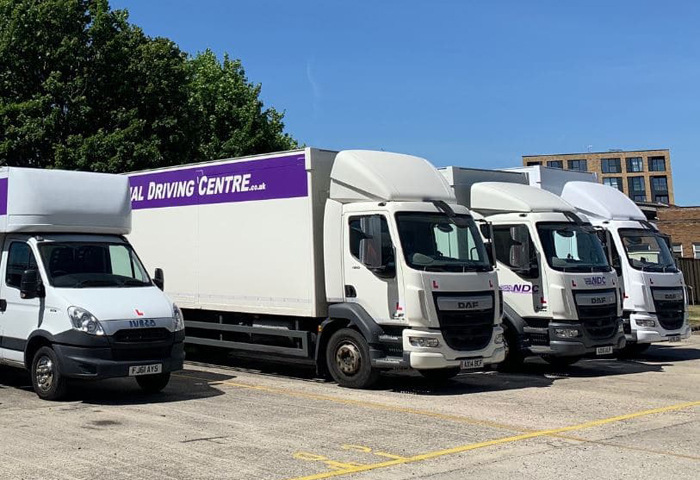As the rain sets in and the temperatures trend downward, the job of the British HGV driver becomes much more challenging. Even the most experienced drivers can find the conditions require extra vigilance, and this is especially true for those who are making long-haul trips. To make the task that much easier and safer, we have put together a list of tips to help those drivers cope with the wintry conditions.
Slowly does It
There are a number of weather issues that can mean that it is time to slow down. Rain, fog, ice, snow, and heavy winds will all make reducing speed necessary. Of course, deadlines are demanding, especially as the festive season approaches, but the excessive speed in challenging weather conditions is the cause of most accidents. Proceed with caution when the weather turns bad. Recent research has revealed that around 22% of accidents on British roads are caused by bad weather – and 11% of these accidents are due to excessive speed.
Keeping a safe Distance
Slowing down will help you stay safe in bad weather, but always remember to keep a safe distance from other road users. This is especially true during the winter months. Your stopping distance is twice what you are used to in more pleasant weather – and if the roads are icy then that stopping distance is 10 times what it would normally be.
Be Prepared
HGV driving can be challenging no matter the time of year – but extra caution is required when the weather takes a turn for the worse. The best way to handle these conditions is to think ahead and be prepared.
- Fill Up. Filling up your tank provides your vehicle with extra weight which can positively affect traction. You should also take care to have at least half a tank of fuel before hitting the road. This will mean that you will be able to use that fuel to heat the cabin should you suffer a breakdown.
- Test your heater to make sure it is working before you leave.
- Make sure that your lights are in working order – and that they are clean and the light is highly visible.
- Make sure that your washer fluid has been topped up.
- Ensure that all windows and mirrors are clean before you set off.
- Make sure that your tire pressure meets legal requirements.
- Make sure that you have access to roadside assistance – which can be invaluable in the event of a breakdown.
- Engine oil and anti-freeze levels should all be at legal levels.
- Check to ensure that your exhaust is free of snow and ice.
- The average life expectancy of batteries is around 5 years – make sure that yours is in good condition – you will need it to provide heat should you break down.
- Plan your route. Check up on weather conditions and if there are any traffic warnings for the route that you have planned. Have a detour in mind should road conditions on the planned route deteriorate.
Your existing licence will only expire if you do not complete your medical standards test when you reach the age of 45 or if you miss one of the obligatory medicals; it’s mandatory that all HGV drivers undertake a medical once every five years. If you also want to renew your licence, you can get more information by googling how to renew my HGV licence.
Put together a ‘Winter Survival Kit’
Winter will mean an increased chance of delays and breakdowns. Pack an emergency winter kit to help you in the event you are stranded, even if it is only for a while.
Be Rested
Make sure that you are well-rested before you set out. it’s not unusual to feel a bit tired during the winter months – dark mornings and evenings play their part. In fact, around 97% of people complain of feeling fatigued during wintertime. HGV drivers need to get sufficient rest and sleep while they are not on the road. Resting during your off shift helps you to cope with the unexpected and avoid accidents.
Use your best Judgement
One of the most valuable pieces of advice is always to think things through and use your best judgment. If the weather is clearly leading to dangerous driving conditions, pull over and wait it out. Pay special attention to tyre spray on the road – that will provide you with clues about the severity of the weather.
Driving in winter has its own unique challenges – and it can be a daunting experience. Always ensure that you are 100% in control of your vehicle – it’ll keep you and other road users safe.

